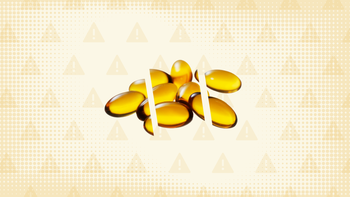
How to Get Rid of a Cough Without a Prescription: Tips and Over-the-Counter Cough Remedies
Key takeaways:
You can easily manage most minor cough symptoms at home. Over-the-counter (OTC) treatments can help loosen a dry cough and provide relief in most cases.
The most effective treatment for your cough depends on the type of cough you have. A dry cough may need a cough suppressant, while a wet cough may need an expectorant.
If you still have a cough after OTC treatments, notify your healthcare professional. They’ll evaluate your cough to figure out the cause and a proper treatment.
Access savings on related medications
Table of contents

A constant cough can be uncomfortable. It can also come along with some unpleasant side effects, like sore throat, chest pain, and exhaustion. This is often true whether you have a “dry” cough (no mucus) or a “wet” cough (with mucus).
The good news is there are many over-the-counter (OTC) treatments that can help to loosen a dry cough and dry up a wet cough. Let’s take a closer look at how you can get rid of your cough without a prescription.
Dry cough vs. wet cough
A cough can be either dry or wet.
Dry cough: A dry cough is a nonproductive cough. That means it doesn’t produce any mucus, so you won’t cough up any thick mucus or phlegm. Instead, it’s often triggered by the sensation of a tickle in the throat. Depending on the cause, it can be a chronic or long-lasting cough.
Wet cough: A wet cough is a cough that has mucus with it. You may have phlegm in your throat or chest that you’re able to clear by coughing.
Search and compare options
Causes of a dry cough
The causes of a dry cough can vary. Common causes can include:
Infections like viral upper respiratory infection
Postnasal drip
Asthma
Medications like ACE inhibitors
Causes of a wet cough
A wet cough with lots of mucus production may be the result of infection or inflammation. Common causes can include:
Pneumonia
Bronchitis
Flu
Upper respiratory infection
Causes of a persistent cough: There are lots of reasons for a nagging cough that won’t go away. Most of them aren’t serious. Learn which need treatment.
Can honey help your cough? Honey is a simple remedy for a nagging cough. Take a spoonful of it, or stir it into a hot drink to soothe and coat your throat.
Is your cough serious? Most coughs go away on their own. But sometimes they can be a sign of a serious health condition, like pneumonia or heart problems. Learn when to get checked for a cough.
Can your cough tell you what’s wrong with you? You can learn about what type of illness you may have from the sound of your cough, its timing, and what you’re coughing up.
How to get rid of a dry cough
Treatment for your dry cough will vary based on the cause. For example, if the cause of your cough is asthma or GERD, managing the underlying condition can get rid of the cough.
Home remedies are worth a try too. They can help, depending on the situation. And, in some cases, OTC medications can also help ease symptoms.
Here are some of your options.
Home remedies for a dry cough
There are several natural remedies you can try at home to treat a cough. Many of them are safe to try for children as well. The following home remedies may work for a cough.
Honey
Honey helps to reduce your cough by thinning and loosening mucus. It can also coat your throat, protecting it from postnasal drip. Honey is safe for kids, but don’t ever give honey to children younger than 1 year. Children younger than 1 year can get botulism from eating honey.
Humidifiers
These devices help to loosen mucus and keep the airways from getting dry. Dry airways are more prone to irritation, which can trigger your cough reflex. Keeping your airways moist with a humidifier is a good way to help prevent this.
Steam treatments
Similar to a humidifier, steam treatments add moisture to your airways and loosen your cough. But humidity from steam is warmer than the humidity provided by a humidifier. The warmth from steam vapors can help break up dried mucus and open up your airways.
Menthol
When used as a rub, aromatherapy, or lozenge, menthol can help to improve a cough. It can also ease the feeling of irritation in the airway. While this doesn’t actually make the cough go away, it can make you feel better while you have a cough.
Thyme and ivy leaf
As a syrup or in tea, the combination of thyme and ivy leaf may work to ease cough symptoms. One study showed that thyme and ivy leaf caused a significant improvement in cough severity with no associated side effects in people who used it.
Warm liquids
Warm liquids can help with a cough. Not only do they provide hydration, the warm fluids also help relieve cough symptoms. The steam that you breathe in while drinking warm liquids may also be a bonus to break up mucus and add moisture to your airways.
OTC dry cough medications
Cough suppressants are common OTC medications that can help treat dry coughs. These medications help stop your cough. Dextromethorphan (Delsym, Dayquil Cough) is a common active ingredient for cough suppressants that offers temporary relief from coughing. There are a handful of OTC cough suppressants you can choose.
Other OTC medications, like antihistamines and decongestants, can also help with a dry cough. They work by drying up irritants, like postnasal drip, that may be causing a tickle in your throat. These ingredients are also in combination OTC cough medications. These medications include:
Loratadine (Claritin), an antihistamine
Cetirizine (Zyrtec), an antihistamine
Chlorpheniramine, an antihistamine
Pseudoephedrine (Sudafed), a decongestant
Similarly, nasal sprays may help with a chronic dry cough that postnasal drip triggers. These medications reduce sinus congestion and decrease irritation in the nasal passages.
OTC nasal sprays include:
Fluticasone (Flonase), a steroid
Budesonide (Rhinocort Allergy), a steroid
Azelastine, an antihistamine
How to get rid of a wet cough
Expectorants are often helpful to break up the chest congestion for a cough with mucus and phlegm. These medications can thin and loosen the mucus you’re coughing up.
You’ll want to look for these products:
Honey is also a useful natural remedy for a wet cough. It can help you clear phlegm from your airways and ease your cough.
When to see a healthcare professional for a cough
You can safely treat most minor cough symptoms at home. But there are a few signs that mean it’s time to get help managing your symptoms. You should give your healthcare professional a call if you have:
Persistent cough for several weeks
Worsening cough despite treatment
Severe chest pain
Wheezing
Shortness of breath
Fever
Get medical care immediately if you’re choking, having difficulty breathing or swallowing, or coughing up blood or blood-tinged mucus.
Frequently asked questions
Dry coughs are commonly caused by allergies or upper respiratory infections. If allergies are causing your dry cough, an antihistamine like loratadine (Claritin) can provide quick relief. If a viral syndrome is the cause of your dry cough, an OTC decongestant medication like pseudoephedrine (Sudafed) can get you feeling better fast.
The best medicine for your dry cough will depend on the cause of your cough and whether you have any other medical conditions. For example, antihistamines are good for coughs caused by allergies, but won’t work as well for coughs caused by upper respiratory infections.
And while decongestants can work great for many types of coughs, you wouldn’t want to take them if you’re taking certain antidepressants or if you happen to be pregnant. Check out our detailed guide to cough medicines and speak with a healthcare professional if you’re not sure which cough medicine is right for you.
A dry cough that gets worse at night is often caused by a postnasal drip. If postnasal drip is causing your cough, a steroid nasal spray like fluticasone (Flonase) can help with your symptoms. Nasal sprays work within a few hours, but they work best after you’ve taken them for a few days.
The bottom line
A persistent cough can be worrisome, but it’s often easy to treat. OTC medications can help both a dry cough or a cough with mucus. And there are many different treatment options available.
The best treatment for your cough depends on the type of cough you have. Expectorants work best if you have a wet cough. Cough suppressants can help for a dry cough. If you have a cough that concerns you, follow your instincts and call your doctor’s office.
Why trust our experts?



References
American Lung Association. (2024). Learn about cough.
HealthyChildren.org. (2022). Coughs and colds: Medicines or home remedies? American Academy of Pediatrics.
Hughes, R., et al. (2022). Frequent productive cough: Symptom burden and future exacerbation risk among patients with asthma and/or COPD in the NOVELTY study. Respiratory Medicine.
Kardos, P., et al. (2021). Effectiveness and tolerability of the thyme/ivy herbal fluid extract BNO 1200 for the treatment of acute cough: An observational pharmacy-based study. Current Medical Research and Opinion.
MedlinePlus. (2022). Guaifenesin.
Sanu, A., et al. (2008). The effects of a hot drink on nasal airflow and symptoms of common cold and flu. Rhinology.
Valussi, M., et al. (2021). Appropriate use of essential oils and their components in the management of upper respiratory tract symptoms in patients with COVID-19. Journal of Herbal Medicine.

























